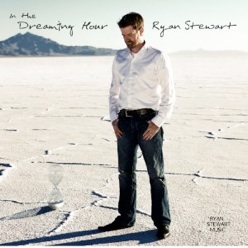
In the Dreaming Hour
Ryan Stewart
2010 / Ryan Stewart Music
47 minutes
Review by Michael Debbage
It has been 2 years since this part time musician released his stellar debut Equanimity. At that time the recommendation was for Stewart to quit his day time job and to use his gifts as a musician and arranger as a full time occupation. Whether that recommendation was embraced, In the Dreaming Hour is only further evidence to support that Ryan Stewart would face no fear of being unemployed making such a transition, as his second album completely misses the sophomore jinx’s that many artists face.
Once again, Ryan composes arranges and even this time around produces his latest creation. It is truly a solo effort that has the resonance and quality of a top notch soundtrack where the music can stand on its own without the need of a dramatic movie screenplay. There are no orchestration credits yet the album is lushly embellished with string arrangements throughout, intertwined with Stewart’s sublime melodic sensibilities. This is perfectly illustrated by the appropriately titled song “Awakening” that not only opens the album but also concludes the album. The opening track includes significant orchestral arrangements that are purposefully slow to soar but by the ninetieth second Stewart includes his trademark angelical choral voices. Meanwhile the reprise that closes the album is his stripped down piano version.
Essentially the album combines both of the above styles throughout the album allowing the listener to enjoy Stewart’s gift for more sweeping details or the polarized approach of his more simplistic piano work. The former is found courtesy of the slow and gradual “Flight” that does not begin to ascend until about two thirds through the song. Similar results can be found on “Butterfly”, “Union” and the heavenly “Garden Of Souls” which also includes the repeated use of the choral voice effects. These are in complete contrast to Stewart’s unplugged piano based compositions such as the melancholy “The Rain” and “One” which are more reflective with less emphasis on the melody but nevertheless engaging.
Stewart does not take the easy way out by creating Equanimity Volume 2, but rather takes a more progressive and abstract way than its predecessor but never at the expense of being cold and sterile. Quite the contrary as Stewart brings greater sophistication and style yet it still simmers with its soft seduction that was present on Equanimity.
March 17, 2011

